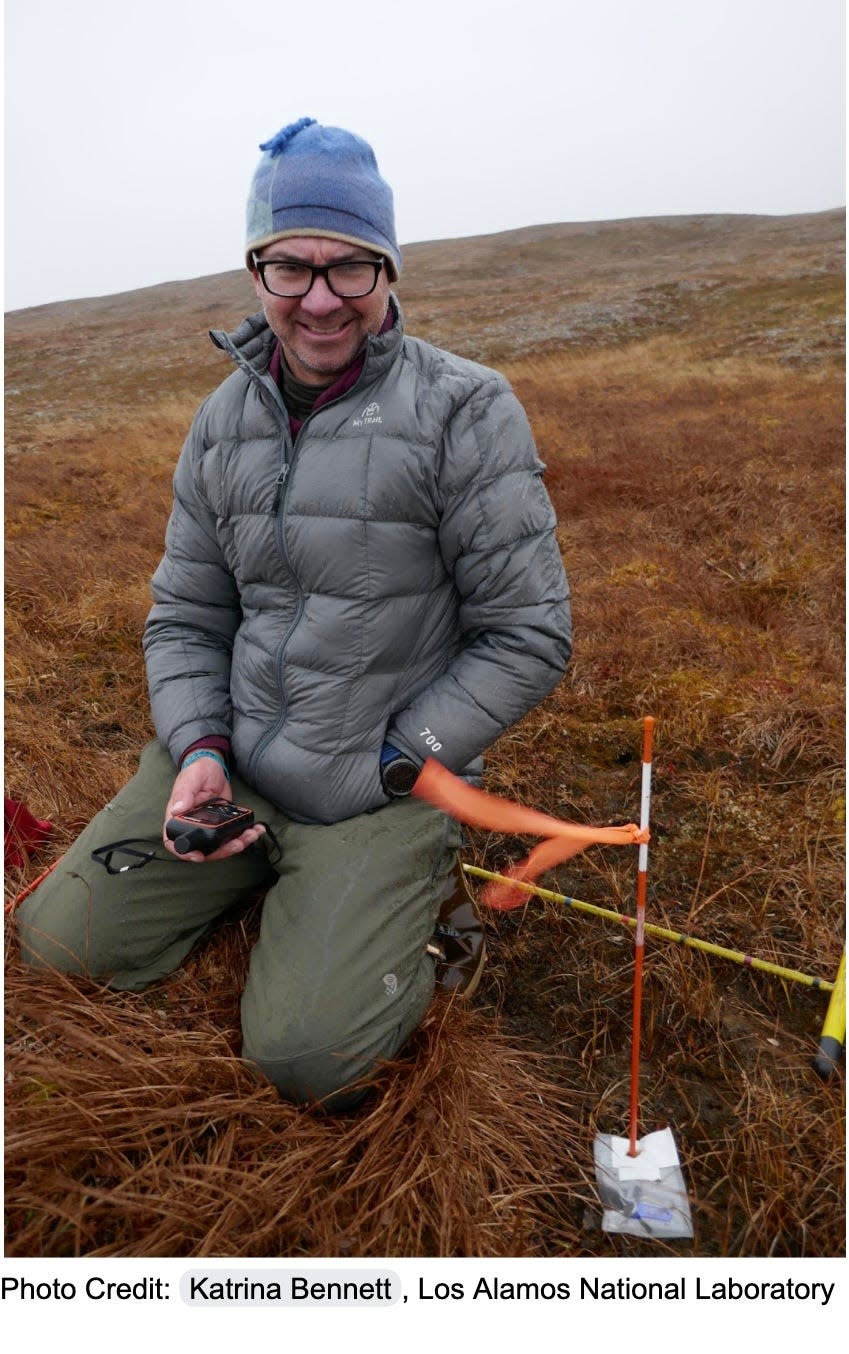Alaskan engineer now at ORNL to speak on permafrost thawing April 9
The Arctic, including Alaska, is currently experiencing an unprecedented degree of environmental change, warming at a pace three to four times faster than the rest of Earth. This change in the climate is profoundly affecting permafrost, the continuously frozen soil typical of the far north’s environment.
Permafrost is thawing, causing a complex array of impacts on Alaska’s environment, including erosion, landslides, disappearance of lakes, loss of fish and wildlife, damage to buildings and infrastructure, as well as loss of resources that native Alaskans depend upon.

Thawing permafrost also significantly affects the global environment by releasing carbon dioxide and methane from the vast amount of organic matter trapped in the frozen ground. These greenhouse gases speed up warming, triggering even more permafrost thaw in an irreversible cycle.
Bob Bolton, who recently moved to Oak Ridge for a new position at Oak Ridge National Laboratory after decades of living in Alaska and working there as a hydrological engineer, will speak to Friends of ORNL on Tuesday, April 9, on “Uneven Ground: What Happens When Permafrost Thaws?” His talk is open to the public.
He is deputy of operations for the Next-Generation Ecosystem Experiments in the Arctic (NGEE Arctic) project led by Colleen Iversen at ORNL. He previously served as research assistant and associate professor for 12 years at the International Arctic Research Center at the University of Alaska Fairbanks, where he earned his master’s degree in geologic engineering and doctorate in hydrologic engineering.
Bolton said he will present an overview of his permafrost-related research for the NGEE Arctic project. He added that he “will talk about an outreach project that gives voice to the people who live and work in these rapidly changing landscapes.”
He will deliver his noon talk at the UT Resource Center, 1201 Oak Ridge Turnpike. Sandwiches, chips, cookies, and drinks will be available at 11:15 a.m. for a low price on a first-come, first-served basis. To view the virtual presentation, click on the talk title on the www.fornl.org website homepage and then click on the Zoom link near the bottom of the page describing the lecture. You can view it the next day by clicking on “Past Talks” on the left side of the website’s navigation bar.
Here is a partial summary of his talk.
“Permafrost, defined as ground that is continuously frozen for two or more consecutive years, dominates the arctic tundra and boreal forest landscapes and processes. The thawing of ice-rich soils in permafrost landscapes can result in a complex and interwoven cascade of impacts on energy and water balance, carbon fluxes, wildlife habitat and existing infrastructure.
“Over the past 12 years, ORNL has led the NGEE Arctic project. Using a combination of field observations, laboratory experiments and multi-scale modeling activities, NGEE Arctic is working to understand and predict the evolution of arctic ecosystems in a changing climate.”
According to an ORNL news release, the project’s goal is a better understanding of carbon-rich processes and climate feedbacks in Alaska to improve Earth system models run on supercomputers at ORNL that help predict and prepare for the future.
Bolton joined ORNL in July 2023 as a staff research scientist and deputy of operations for the NGEE Arctic project. His research has focused on understanding the magnitude, timing and pathways of water fluxes in permafrost-affected environments, with a recent focus on vegetation-snow-permafrost interactions.
For the NGEE Arctic project, he is responsible for all aspects of safety, community engagement and outreach, as well as international collaborations. He is a co-founder of the Alaska Voices podcast.
This article originally appeared on Oakridger: Alaskan engineer now at ORNL to speak on permafrost thawing April 9

